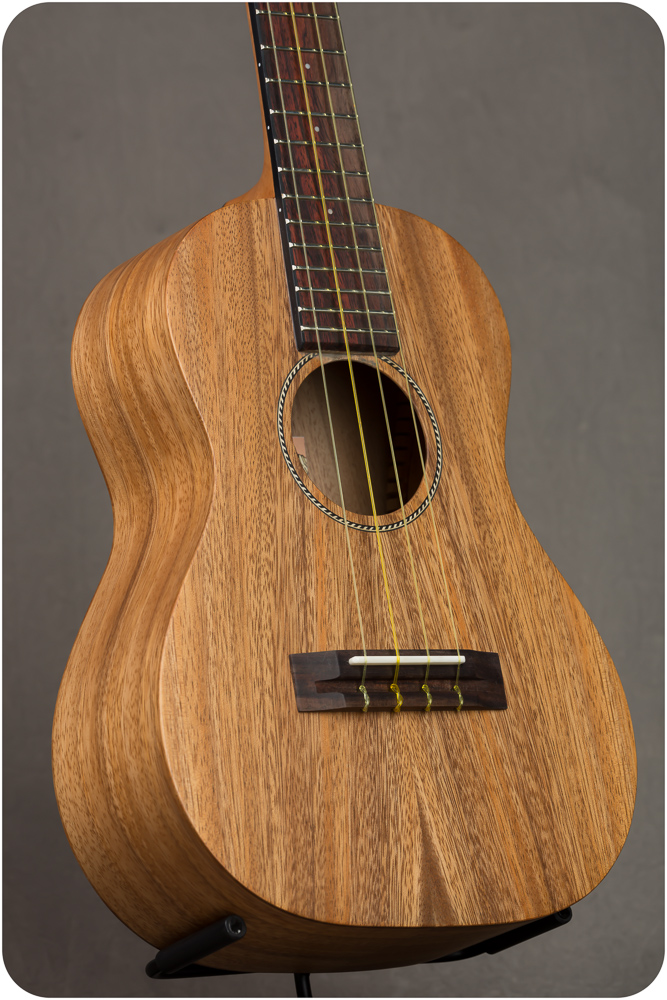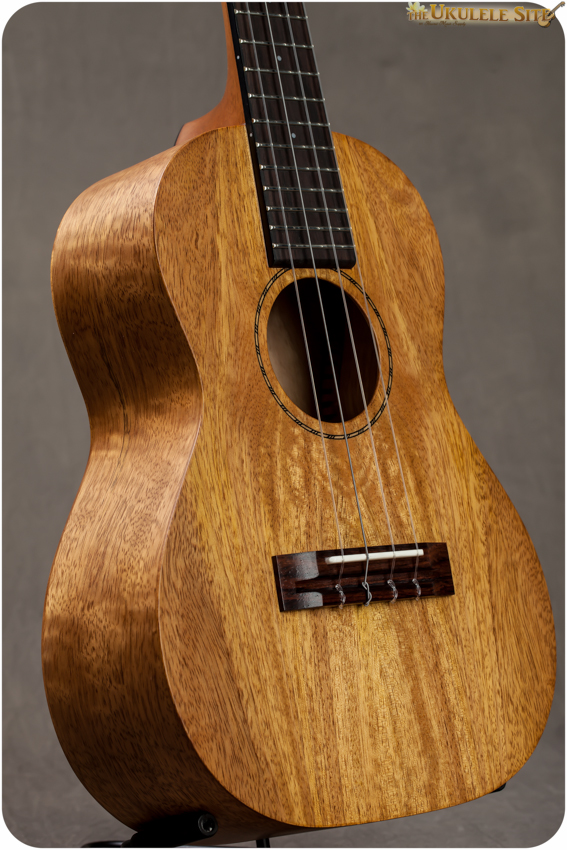The difference in our market now? Not much except that we can service the world thanks to the advent of the Internet. We aim to provide the best ukulele shopping experience online. Right now I want to explain one aspect of this: our video sound samples.
So the question is: “Can you really hear the true and often subtle tonal differences on your desktop, laptop iPad, phone device etc., with a really accurate, unaltered (i.e., “dry”) recording?” I’d say…no.
I do think you can hear many aspects of the instrument. But often our customers are trying to listen beyond the music and get true comparisons. Well our video samples can provide these details, but it requires quality reference monitors or headphones made for mixing (not for enhancing). If you don’t have this tool, then do your musical inspiration a favor and get one. You’ll enjoy the energy of your favorite players and albums, and for those too far away to visit the store, it will allow our resources for comparing sounds to be beneficial, especially with our “listening booth” style videos like this one.
As real as there are differences, there is the reality that some instruments, even made with different woods, can be very similar. I get asked regularly about these three models/woods and how they compare. These are all the same brand, size, batch, finish, strings and made with woods of similar density. Bottom line is, the Pono Acacia (AT), Mahogany (MT) and Mango (MGT), tenors are not so different. Just for perspective on that, the lbs/ft specific gravity for spruce is around 25-30. Macassar ebony 65-70. Those are quite different. But Mango, Mahogany, and Acacia are all within 38-42 lbs/ft. Those are averages. Wood is only one factor in tone. Builder’s methods, player’s style, strings and ukulele size also factor in.
This was a requested listening booth. It sounds like what I heard in the
room.
I do hear very subtle nuances, maybe even better in the video with the back-to-back. But, if you are choosing one of these, your musical satisfaction probably won’t hang on which one you choose. But who knows. Here’s one data point for you.
When shopping for a uke, my best advice is, follow your ears, eyes and heart. And remember, you’re trying to decide on an ukulele. This is fun!
For more videos in this format go HERE
so keep checking!




Comments 12
Thank you.
Author
Thanks for checkin’ it out Jim!
Very awesome playing and sounding ukes!
Author
Yes! Mahalo Samson.
ok i closed my eyes ,peeked now &then could not tell the difference . other then player what makes the difference the bridge , bracing ,strings ?
is there one key ingredient above any
Author
All of those things are a factor, but when everything is the same except the wood, and especially if those woods have similar characteristics, then they will sound nearly identical. That’s what this video shows me. Perhaps some hear profound differences. Like you, I don’t. Thanks George.
All three sound very good! That being said, I believe I do hear subtle differences between the ukes. The one thing I have noticed in listening to ukes online, is that it’s generally the bass that doesn’t come through. The mids and highs seem to generally be a fair representation on what you get. Especially when recorded so well, as the fine folks at HMS do.
I find the MGT,while bright, it doesn’t have the sparkle the AT has in it’s highs, and a slightly thinner mid tone. The MT trebles are not as bright or sparkly as the other two, but it does have a wonderful overall warmth and sweetness to them, and the mids. None of this makes one better or worse than the other (I preferred the MT) but depending on what you’re looking for, one might suit you more than the other. Also, what is interesting is how different woods change over time. To bad one couldn’t hear a recording of the same instrument, playing the same piece of music 5 or 10 years later.
Thanks for the wonderful comparison Andrew! It’s really helpful to the uke community to have access to such great reviews and videos.
To my ears the AT is more open sounding, with ever so slightly more clarity and highs; the MTG is a very close second in openness, but lacking the AT in highs; the MT was the least desirable to my ears, sounding somewhat compressed and muffled. But, without the side by side comparison, I bet I would be more than happy with the tone of any of them. I was glad that the AT stood out, though, because I find it a more attractive wood than hog. (BTW- I do NOT have neutral headphones; I’d love to give it a try with a pair…)
Interesting video. I would have put good money down that I could easily tell the difference. Oh well!
On the other hand, I have purchased 8 instruments based on internet video sound and have never been disappointed with my choices. Thanks HMS!
My age is 87 and I started getting interested in ukulele playing and building ten years ago. I have build about 30 of them. Some are good and some are not so good.
So far the best sounding one is one with walnut back and sides and sitka spruce top.I did build two ukes mahogany sides and back and the tops I used
bas wood,and I did like the sound very much.All the ones I built are tenors.I like the sound better and my hands are too big for the smaller one. All are solid wood.
I bought only one ukulele. It is a Kala and it is beautyfull and it sounds great. I love your program. Thank you
Wally
I really appreciate being able to hear the difference when they are played continuously. You can hear the changes in the wood. Thanks!
I live in Denmark, so was not able to come in to your shop and choose an uke in person. But I knew I wanted to purchase from The Ukulele Site due to your great setup and service. Prior to purchasing my Gretsch tenor uke almost two years ago, I listened to many, many, many sound comparisons on your website. Once I had settled on the Gretsch, I started listening to STRING sound comparisons. Ultimately, I decided to purchase a Gretsch Tenor and had it set up with (Low G) Southcoast strings. Such a lovely, warm sound. I believe that having access to these sound samples was what allowed me to purchase the exact right uke for me. Everyone has a different notion of what sounds like a “perfect” uke, and I found mine. I love it so much. Thank you for providing such invaluable service!